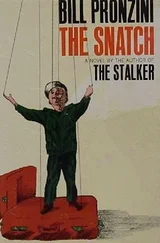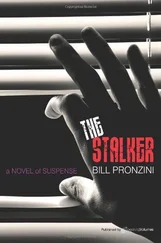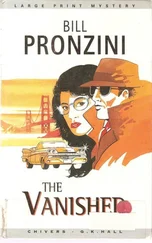After Jan was gone, she tackled the kitchen again. She’d started painting it on Sunday, and had finished it yesterday with Jan’s help. All that remained to be done was some touching-up work and a general cleanup; then, this afternoon, she could get back to work on her preliminary sketch of the Eddystone Light.
By noon she had managed to scrape off most of the paint that had slopped over onto the window, counters, and floor. There were a few stubborn spots but they would come out with turpentine. She set down the single-edged razor she’d been using and surveyed the room with satisfaction. The white semi-gloss enamel had brightened the space considerably; the kitchen even smelled clean and fresh. Now turpentine-and then she would be done.
She went through the little cloakroom-still gray and dingy, but she didn’t intend to expend any energies on it-and into the pantry, where the painting supplies were. The pantry was good-sized; the staples they had purchased in Hilliard, plus the few supplies they’d brought from home, barely filled its shelves. Obviously, lightkeepers had had to keep much more on hand in the days before the modern automobile made trips into the village both simple and convenient.
She was reaching down for a can of turpentine when she thought she heard a noise. She froze, listening. There was nothing to hear. You’re getting jumpy, Ryerson, she thought. Imagining things. But then she remembered the old well, the one under the trapdoor in the pantry floor. Just thinking of it gave her the creeps. Which was silly, of course; but she couldn’t help disliking that dark, dank cavity filled with God knew what kind of refuse. And-rats, too? Rats would make a rustling sound.
She looked down at the metal ring that served as the handle for the door. She ought to check. If there were rats down there she’d have to buy poison, get rid of them. She wasn’t about to live with disease-carrying rodents just a few feet away from their stored food.
Decisively, fighting off a shudder, she bent and grasped the ring and pulled upward. The door yielded, creaking. It was heavy; she drew it up halfway, warily, ready to let it fall again if anything came scurrying out of the darkness. But nothing did. She eased it back as far as it would go on its hinges, left it canted there at an angle to the floor and the well opening it revealed.
The air that rose up from inside the cut-out space was musty, like an old cellar that has gone too long unused. She took their big Eveready flashlight from where it sat on a nearby shelf and shone it down inside the well. Nothing moved in the sweep of light; thank God for that. The cavity was about three feet in diameter, at least a dozen feet deep, with rusted metal rungs mortared into the stone walls. The debris at the bottom was mounded unevenly: unrecognizable metal shapes, some broken china, pieces of dusty glass, a dented tea kettle, even an old (twenties?) automobile hubcap. But no rats. Not even droppings indicating their presence.
Reassured, she shut off the flashlight and lowered the trapdoor. Dusted off her hands, got the turpentine, and started back toward the kitchen with it. But at the entrance to the cloakroom something made her turn and glance back at the trapdoor. It was irrational, but she wished the damned well wasn’t there. Or at least that she didn’t have to be reminded it was every time she entered the pantry.
Then she remembered seeing some carpet remnants out in the garage, leftovers from the carpeting in the living room. One of the bigger pieces ought to cover the trapdoor. And they could use it as a mat to wipe off their shoes when they came in through the pantry in wet weather.
An hour later the trapdoor was not only carpet-covered, but she had tacked the remnant down at its four corners to make sure it stayed in place. She had also finished cleaning up the kitchen, had polished her blue enamel cookware and hung it on the new hooks on the wall, and was feeling rather pleased with herself. Hungry, too. A tuna sandwich, she thought, and maybe a glass of wine.
She was mixing up the tuna at the drainboard when she saw, through the window, that she was about to have company. Mandy Barnett, of all people, had just come through the gate and was walking toward the lighthouse.
Frowning, Alix put the tuna salad into the refrigerator, went into the living room, and opened the door just before Mandy reached it. The girl was dressed in the same Indian-style poncho, jeans, and beaded leather headband; she grinned at Alix and said, “I didn’t see the car and I was afraid you wouldn’t be home.”
“Well, this is a surprise. How did you get all the way out here?”
“A guy I know brought me. He’s waiting down the road.”
“The boy in the green Chevvy?”
“That’s right. Aren’t you going to ask me in?”
Alix hesitated; but she was curious about why the girl was here. “All right, come ahead.”
Inside, Mandy said, “It’s not too bad here.”
“We like it.”
“Nicer than where I live, that’s for sure. You know the trailers up on the north end of town?”
“Yes.”
“My mom, dad, two brothers, and me live in one of them. We don’t even have running water.”
Alix didn’t know what to say, so she kept silent.
“We take turns hauling water from the faucet,” Mandy said. “I sleep on the couch. Last week we had egg sandwiches for supper four days.”
“Mandy, why are you telling me all this?”
“I just want you to know where I’m coming from.” The girl began to pace around the room the way she had at the launderette, examining things and humming a vaguely recognizable rock tune. The lyrics, Alix recalled, had something to do with wanting to “get it on all night.” At Mandy’s age she wouldn’t have even considered getting it on all night, much less sung about it. Mandy was obviously much more precocious; she had a tough, put-on assurance that might have been amusing if she hadn’t been so serious.
She said, “Suppose you tell me why you’re here.”
Mandy stopped pacing. “I wanted to talk. You’re from California, right? Someplace near San Francisco?”
“Yes.”
“Nice there.”
“Yes.”
“What do you think of Hilliard?”
Alix debated an answer, but took too long for Mandy’s liking; the girl answered her own question.
“Well, I hate it!”
The outburst cracked her tough-girl veneer. Alix took advantage of it and asked her, “Why, Mandy?”
“It’s ugly and cold, and everybody’s poor. There’s nothing to do but go to church or to the fucking Bingo games at the community center. I hate living in that trailer. We used to rent a house, but when my dad lost his boat we couldn’t even afford that. My mother used to have a dream that someday we’d own our own house, somewhere nice like Bandon or Coos Bay, but that’ll never happen. She doesn’t dream about anything anymore.”
“Don’t you have friends in the village? At school?”
“I dropped out this year.”
“Why?”
“Why not? Sitting in school wasn’t getting me anywhere and I had a chance to go to work at a boutique in Bandon. But that fell through. Besides, my dad’s got a high school diploma and look what it’s done for him.”
“What about your friend in the green Chevvy?”
“Him? He’s just my connection for dope. That’s about the only other thing there is to do around here-smoke dope. And get it on on weekends. But that doesn’t mean he’s my friend.” She met Alix’s eyes defiantly; the tough veneer had hardened again.
Alix kept her expression neutral. “Okay, now I know where you’re coming from. What do you want?”
“I’ve got a business proposition for you.”
“Oh? What sort of business proposition?”
Читать дальше












